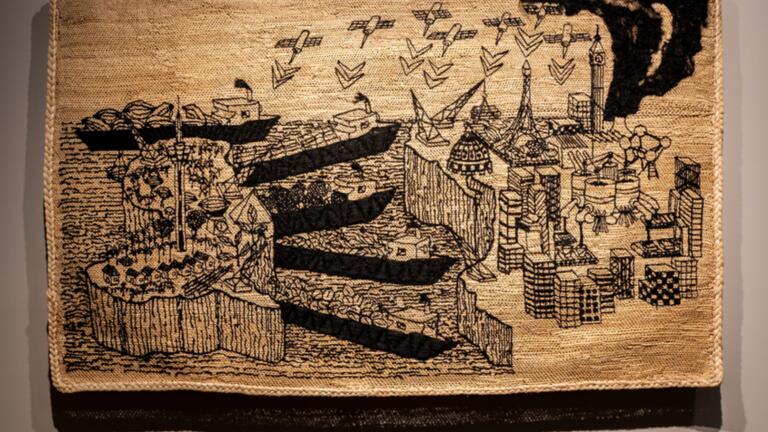Environmental Justice and Decolonial Ecologies
This course examines the making — and unmaking — of spatial and ecological violence. While the universalizing concept of the Anthropocene has become a convenient shorthand to understand agency in the age of changing climates, it elides the central role of systems of racial capitalism, colonialism and white supremacy in the destruction of human and more-than-human lifeworlds and erases other temporalities of disaster and survival.

Africa Empty, Europe Full Up, Ced’art Tamasala / Cercle d'Art des Travailleurs de Plantation Congolaise (CATPC).
This course examines the making — and unmaking — of spatial and ecological violence; at the plantation, the prison, the colony, the camp, the suburb, the factory, the forest, the dam, and more. While the universalizing concept of the Anthropocene has become a convenient shorthand to understand agency in the age of changing climates, it elides the central role of systems of racial capitalism, colonialism and white supremacy in the destruction of human and more-than-human lifeworlds and erases other temporalities of disaster and survival. In this course, we engage critical concepts from environmental justice, Black geographies, indigenous studies, urban political ecology and architecture history to interrogate these processes and to orient us away from rubrics of value, development or sustainability, towards non-extractive futures and decolonial horizons. This graduate-level course is designed to create a community of learning through close reading and discussion. All students are welcome (undergraduate or graduate, architecture or non-architecture) with interest and engagement in these issues.